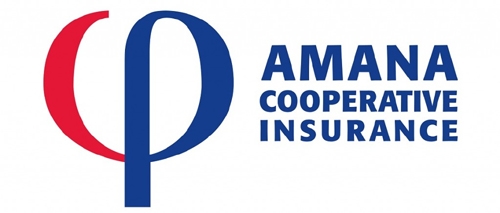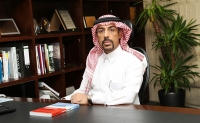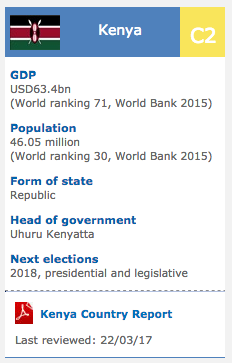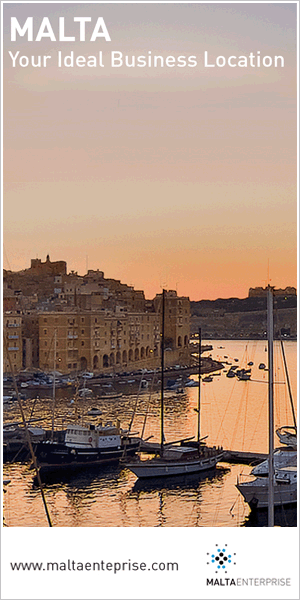Saudi Arabia: Mr. Majed Sorour General Manager of Amana Cooperative Insurance
2015/05/23

Amana Insurance is one of the promising insurance companies in Saudi Arabia ready to compete with new lines of business.
Amana Insurance was established in 2010 and the insurance market here has been volatile over that period, lots of competition, race to the bottom pricing and these sorts of things but the company has progressively lost less and less money since you have been here and presently looks like it’s really going to grow significantly and turn that corner and become very profitable and interesting.
Perhaps you could just give us from your perspective a brief overview of the story of AMANA Insurance and how you are expecting to develop moving forward.
The whole idea of AMANA was to establish a multi-line of business in the insurance industry. The focus in the beginning was to grow within a profitable line. A profitable line at that time was medical retail. So, they decided medical retail was going to supersede all other lines of insurance and see how that goes. The medical retail was too tricky because of multiple layers, missing documentations and all these things and documentations can be really, really overwhelming. So, at some point in time in 2011, they changed the management.
They moved it from Managing Director to General Manager. The previous General Manager came in with an idea that he wants to change the company from almost one line of business and open it up to all the multi-line of business. At the same time, they were required to change system and all these things. All this turbulence has in a way, even though it’s very applaudable to look at it from outside, it became almost a disaster for the company because it hindered the company from increase. So, from a year where they sold 260 million to the next year of 54 million in the same line. It was absolutely not a good idea. Again comes the year next and the company managed in the last 3-4 months to recover some of the losses because up until the end of September there was only increase of almost 30 million, close to 83 million worth of losses.
At that time there was a plan that was put together that we needed to grow in the top line while preserving the bottom line even though we know that it’s going to be a large reservation, we are going to have to put some …
It’s going to have to be about efficiency …
It’s going to be efficiency but at the same time as you sell under different lines and you grow from almost nonexistent to triple / quadruple, you know there’s going to be some reserve that’s to be put against any part that you get increase and we know among next year 2015, this company’s going to have hopefully, according to plan, a really large gain and the large gain is going to be the turnaround for the company. So, in 2014 we decided that this is going to be the company increase year. While we are growing, we need to look at all aspects of the company from efficiency initial, cutting down cost second. Therefore, we are going to have to make the transformation in 2015 to sell only and only in the profitable lines that we have and diminish the other lines. That’s going to be the focus.
Looking at the product range, I haven’t seen any Shariah compliant products. Is that a conscious decision or not?
There are two different ways of doing it actually. There is the capital way and there is the cooperative way. Both of them are Shariah compliant. So, it’s a choice. Even at the same time as you look in the market, all the insurance sector, some of them don’t have the Shariah board but all the products are Shariah compliant. Each and each product that you see in the market is 100% Shariah compliant under the cooperative agreement. So, you don’t have to be the capital to be Shariah compliant but we do have a Shariah board and they approved all of our products, they approved our investments and all that.
The central bank, SAMA, they recently introduced obligatory actuarial pricing to the market to sort of stabilize that inertia or race to the bottom. How has that effected or influenced your business?
SAMA has implemented two different ways of regulating the reserve. One of them is a formula that you have to apply to all your products to figure out what is the all of reserves, so companies are not under reserve in certain businesses. The other way of doing this is through the actuarial pricing and in the beginning of the year, as the time changed and accidents changed, the ratio has been changed. The actuary reserve can change based on given facts in the market itself. It is not always a set formula but it’s an industry wide study. They do their studies industry wide, they come back to us, they say “Okay, your book presently needs to have that much reserve in it.” Sure you want to fight it but smart companies don’t want to fight because a few over reserve at any given time for the quarter, all that’s to do at the same time as you come to the next year is they are going to release all this reserve and this reserve is going to turn the company from loss making to a profit making one. So, we met with SAMA just in September and they asked us to readjust our reserve. We increased our reserve and we feel good about it. I think it’s better to have over reserve to protect the policy holders. Basically what we are saying is god forbid in case of the biggest disaster, we can pay each single policy holder.
What do you think additional could be done from a regulatory perspective to protect companies and investors and their customers?
I think the regulatory agency really have done as much as possible to re-reserve which we appreciate. We have to evaluate the management and we have to evaluate the board. You need to have some of the board members with some knowhow. At the same time as you come to some companies, at the same time as you only have one person or two persons with limited knowledge of the insurance industry and the rest of them is just pure investors, it makes things really difficult.
There’s 30, 33, 35 companies in the insurance market that’s fiercely competitive for a market of size of Saudi Arabia. How does that affect your ability to plan for the long term as a company?
Planning for the long term has to end up honestly with limiting these companies. A lot of of these companies that are in the market, as we speak presently, are suffering large losses because you cannot compete on the premium. You have to offer other things for the market to understand what are you and what can you offer. So, what we encourage in our company which we have an chance of is some companies are specifically in the market to sell one product, as we have multi line of business and at the same time as we do multi-line of business, we can cross sell. Cross selling, this is one of our strengths. So, we are not only selling medical, we are selling medical, motor. We don’t have life but we have other things. We can insure your buildings, we can insure your home, we can insure all these things. So, that gives us an ability to cross sell.
The other thing is that we as well offer other services that other companies don’t have. For example, if you want to insure with me in the medical line, I can actually as well have an addition where you can have the ability with my card to use your card in Jordan, Lebanon, UTCC and we can as well extend it to international lines because we have our international arms and each one of those cards have additional premium but it covers you worldwide.
What would you say are the key distinguishing factors for AMANA from the competition in Saudi Arabia? What distinguishes your brand?
It’s the name. Initial of all, the name. We like to pay for our claims. It’s an immediate payment of claims. That sets you aside from the market because what we are selling here really is we are selling a promise and if you are going to sell a promise to anybody, you can lose face price instantly if you don’t deliver on your promise. The second things is, like I said, cross selling as well helps us to set the stage to just be different than the rest of the market.
We need the market to know that there is a strong company called AMANA and we need to start making a profit. In the longevity, we are not really looking to mergers additional than we are looking to acquire. Acquisition is what we are thinking instead of merging. Merging is not a bad thing. To merge with an extra company with one line of business or two lines of business you are successful at, you want to merge them to bring one line of business stronger to yourself but I think acquisition is what AMANA is looking at. If there are two different companies, you cannot – or maybe you can, depends on how is the management – but you cannot put a lead company with a lead company to make a successful story about it and it will be a disaster.
Speaking with leaders in the policy making institutions surrounding the stock exchange here and the Council of Saudi Chambers, the leaders in these areas, long-term partnerships and developing international relationships are a key vision of the Tadawul opening up for investment . How are you approaching that thinking about partnerships?
We haven’t really established this. We have a few interested groups from the rest of the world. Namely, German partners would like to get involved, Swiss partners would like to get involved and it’s mostly coordinated from England for us. So, we have been in meetings with a few interested investors if they want approaching and pump capital or invest in the company or they want to be part of our company in terms of increase. They have vast knowhow. If you look at the market in Saudi Arabia, as large as it is, we still did not even uncover so much of the market. I have come from a background in the US where we have so a lot of things that we sell at the corporate level. Again you come here and you find out that the pie or most of the pie is in non-life. Imagine the potential. It’s huge increase that we are expecting but, like you said, the market is saturated and we have a lot of companies that are hurting financially. So, once this is consolidated, my expectations is to cover the other opportunities. So, if this happens, imagine if the increase within that for me. Again you open it up to other lines of insurance where you don’t have to … Home insurance, we still don’t have home insurance, individual home insurance; livestock, all these things. We aren’t covering all these things. It will be interesting. It will really be interesting. Travel insurance.
The opening of the Tadawul is something that’s provided great excitement and opportunity. How do you view it as the leader of an exciting insurance company?
I think it’s going to be absolutely tremendous. I think it’s going to add so much price. The Saudi stock exchange, if you look at the diversification of it, it’s fully diversified. It may be just one of two things but it’s fully diversified. So, this diversification helps investors actually to look at it from a perspective to understand that we are not limited to one or two products. We have so a lot of different industries that we can invest in and this will just attract a lot of investors from all over the world. To us it’s an exciting time. We look forward to it and we would like to join that too.
What specific preparations are you making as a company to be in the best possible position so at the same time as the market opens next year?
We are not prepared for that. We can at no time be prepared for that. We look forward to it really. We, as a company, have been discussing about a lot of other interested partners. We would like to see where we are going to take this and what is the best thing for AMANA and what it is for AMANA. Again we will look at all the other additions.
One final question is about London, the UK obviously is the oldest insurance market. It’s got some excellent strength and knowledge, and one of the key things is partnerships here but you have 33 insurance companies in Saudi Arabia, you can get a little bit lost in the crowd. What sort of key messages do you have or defining features of the company.
Even if we go just little bit back or even further back, Saudi Arabia is still reliant on the expatriate community and their knowhow. UK, if we look at it outside of military affair that are present in southern Saudi Arabia in advisory and all those levels. So, we always look back to their knowledge. The knowledge that they bring in from the UK, from Great Britain to Saudi Arabian market is large. It’s large, it’s understandable, they have seen it, they lived the completed to build the next. We need the leadership to give us an insight into the next, what we expect someday. That’s the difference between successful and unsuccessful companies is the vision that comes from the knowhow. The UK, as we all know, is one of the greatest in terms of consulting and in terms of advising, giving you a clear vision someday and how you need to go about it. You don’t need to be a large winner presently and a great loser later. You want to have that steady stable gain that’s going to last forever and that’s something that we always look back in the UK and we trust that’s going to happen.
- Related Articles

Climate change laws around the world
2017/05/14 There has been a 20-fold increase in the number of global climate change laws since 1997, according to the most comprehensive database of relevant policy and legislation. The database, produced by the Grantham Research Institute on Climate Change and the Environment and the Sabin Center on Climate Change Law, includes more than 1,200 relevant policies across 164 countries, which account for 95% of global greenhouse gas emissions.Weaker energy prices and an ambitious reform programme aimed
2017/04/16 Weaker energy prices and an ambitious reform programme aimed at increasing private sector participation in the economy were key themes of 2016 as Saudi Arabia accelerated efforts to diversify its economy. While oil prices made a modest recovery from $30 per barrel at the beginning of the year to $50 in the fourth quarter, both national gain and GDP have been impacted. In mid-October the IMF revised its increase estimate for the Saudi Arabian economy in 2016 to 1.2%, down from the 1.6% estimate issued in May and the 3.5% posted the previous year.p.jpeg)
Qaid K. Alotaibi, CEO of Saudi Ground Services Company (SGS)
2016/02/05 Saudi Ground Services Company (SGS) is facing a rapidly expanding air transportation sector and new competition in providing its ground-handling services to the kingdom’s airports. CEO Qaid K. Alotaibi reveals how the respected Saudi brand’s competitive advantages are preparing it for both domestic and regional expansion. Saudi Arabia is presently at a crossroads where they have to decide to become a diversified economy or remain as an oil-based economy. How significant do you think diversification would be for Saudi’s next increase?
Saudi Arabia's pharmaceutical industry Pharmaceutical market forecasted to reach $4.7 billion by 2016
2015/05/26 As the number one company in the pharmaceutical market, Spimaco has benefitted greatly from the expansion of the industry, enjoying 50% profit growth between 2011 and 2014 So SPIMACO has operations throughout the Middle East and North Africa region. You export and trade pretty much throughout the region as well as having partners all over the world. When we think about pharmaceuticals, these are really sort of feeding into the healthcare sector, and Saudi Arabia is really considered to be the giant healthcare sector, in terms of growth and potential. What’s your assessment of Saudi Arabia’s sector in pharmaceuticals from an investment perspective?
“Construction: A trillion dollar business”
2015/05/22 Cash flow priority for AlKhodari in it’s aim to capitalise on Saudi mega project boom We would like to get a view of the story behind the company in your own words.
- Saudi Arabia News
-
- SAUDI ARABIA: Saudi Arabia detains critics as new Crown Prince consolidates power
- AFGHANISTAN: UNWTO: International tourism – strongest half-year results since 2010
- IRAN: Saudi Arabia denies warming relations with Iran
- UNITED STATES: Saudi King to visit White House in 2018
- SAUDI ARABIA: Yemen: Saudi Arabia 'should fund all humanitarian aid'
- SAUDI ARABIA: Three decades later, Saudis get their first concert
- Trending Articles
-
- EUROPE: Ball Corporation Debuts Three New Aluminium Beverage Can Sizes
- ZAMBIA: Zambia insists on fish import restriction despite deficit
- ISRAEL: Netanyahu to pioneer new diplomatic grounds in Latin America
- CHINA: Xi Jinping opens BRICS Summit in Xiamen, asks members to shelve differences
- SOUTH AFRICA: Nigeria and South Africa emerge from recession
- WORLD: How fair is our food? Big companies take reins on sourcing schemes












